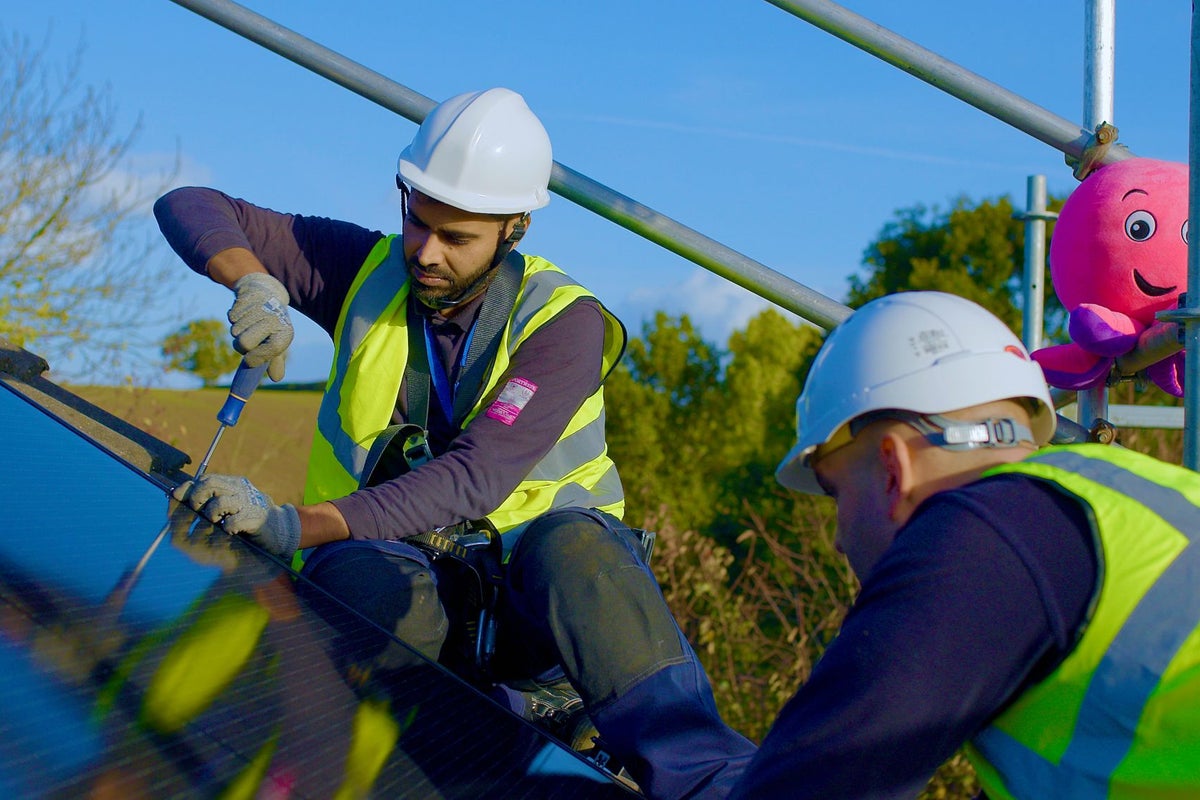- News
- UK
- Home News
The saga has seen two senior executives resign and threats of a $5bn lawsuit
Mathilde GrandjeanMonday 24 November 2025 09:35 GMTComments
 CloseTrump says he will sue BBC for up to $5bn over Panorama edit
CloseTrump says he will sue BBC for up to $5bn over Panorama edit
Get the free Morning Headlines email for news from our reporters across the world
Sign up to our free Morning Headlines email
Sign up to our free Morning Headlines email
 Email*SIGN UP
Email*SIGN UPI would like to be emailed about offers, events and updates from The Independent. Read our Privacy notice
Donald Trump intends to sue the BBC for up to £5bn, following the broadcaster's apology but refusal to offer compensation over a controversial Panorama documentary.
The programme, aired just a week prior to the 2024 US election results, is accused of misleadingly editing a speech Mr Trump delivered on 6 January 2021.
It spliced two distinct clips, creating the impression that Mr Trump instructed the crowd: “We’re going to walk down to the Capitol … and I’ll be there with you. And we fight. We fight like hell.”
Critics argue that the edit was deceptive, omitting a crucial segment where Mr Trump urged his supporters to demonstrate peacefully.
This controversy led to the resignations of two senior BBC executives and a non-executive board member.
Here is how the saga unfolded.
 open image in galleryDonald Trump has threatened to sue the BBC for up to $5 billion (PA Wire)
open image in galleryDonald Trump has threatened to sue the BBC for up to $5 billion (PA Wire)Tuesday 4 November
The Telegraph reported that a memo on impartiality by Michael Prescott, a former external adviser to the BBC’s editorial standards committee, had raised concerns in the summer about the documentary Trump: A Second Chance?
It said the clips were spliced together to make it appear he had told supporters he was going to walk to the US Capitol with them to “fight like hell”.
The Telegraph story prompted claims that the corporation selectively edited the speech and misled the public.
Mr Trump’s press Secretary Karoline Leavitt, in the first comments by the White House on the row, later told the Telegraph: “This purposefully dishonestly, selectively edited clip by the BBC is further evidence that they are total, 100 per cent fake news that should no longer be worth the time on the television screens of the great people of the United Kingdom.”

Sunday 9 November
Tim Davie announced he would step down as director-general of the BBC after five years in the role, saying there have “been some mistakes made” and he had to “take ultimate responsibility”.
The chief executive of BBC News, Deborah Turness, also announced her resignation on Sunday night, declaring in her statement the controversy had “reached a stage where it is causing damage to the BBC – an institution that I love”.
She went on: “As the CEO of BBC News and Current Affairs, the buck stops with me – and I took the decision to offer my resignation to the director-general last night.
“In public life leaders need to be fully accountable, and that is why I am stepping down.”
Though she agreed that mistakes were made, she rejected claims the BBC was institutionally biased.
The resignations came after Dame Caroline Dinenage, chairwoman of the Commons Culture, Media and Sport Committee, wrote to BBC chairman Samir Shah asking what actions he would take over the controversy.
Mr Trump welcomed the BBC resignations and claimed there had been an attempt to “step on the scales of a presidential election”, adding on social media: “What a terrible thing for Democracy!”

Monday 10 November
Mr Shah responded to Dame Caroline’s letter saying the corporation would like to “apologise for that error of judgment”.
He said there have been more than 500 complaints since the publication of the memo, adding: “We accept that the way the speech was edited did give the impression of a direct call for violent action.”
Earlier in the day, Dame Caroline said Mr Davie “ignored” concerns raised in Mr Prescott’s report.
She told BBC Radio 4’s Today she was “very sad” about Mr Davie’s resignation, calling him “an effective leader at the BBC” but said he “should have reacted with concern and examined the claims, but just ignored it”.
When she arrived at Broadcasting House in central London on Monday, Ms Turness told reporters the corporation is “not institutionally biased” and the journalists are not “corrupt”.
Downing Street also rejected claims the BBC is corrupt or institutionally biased, with the prime minister’s official spokesman adding it is “important that the BBC acts to maintain trust and correct mistakes quickly when they occur”.
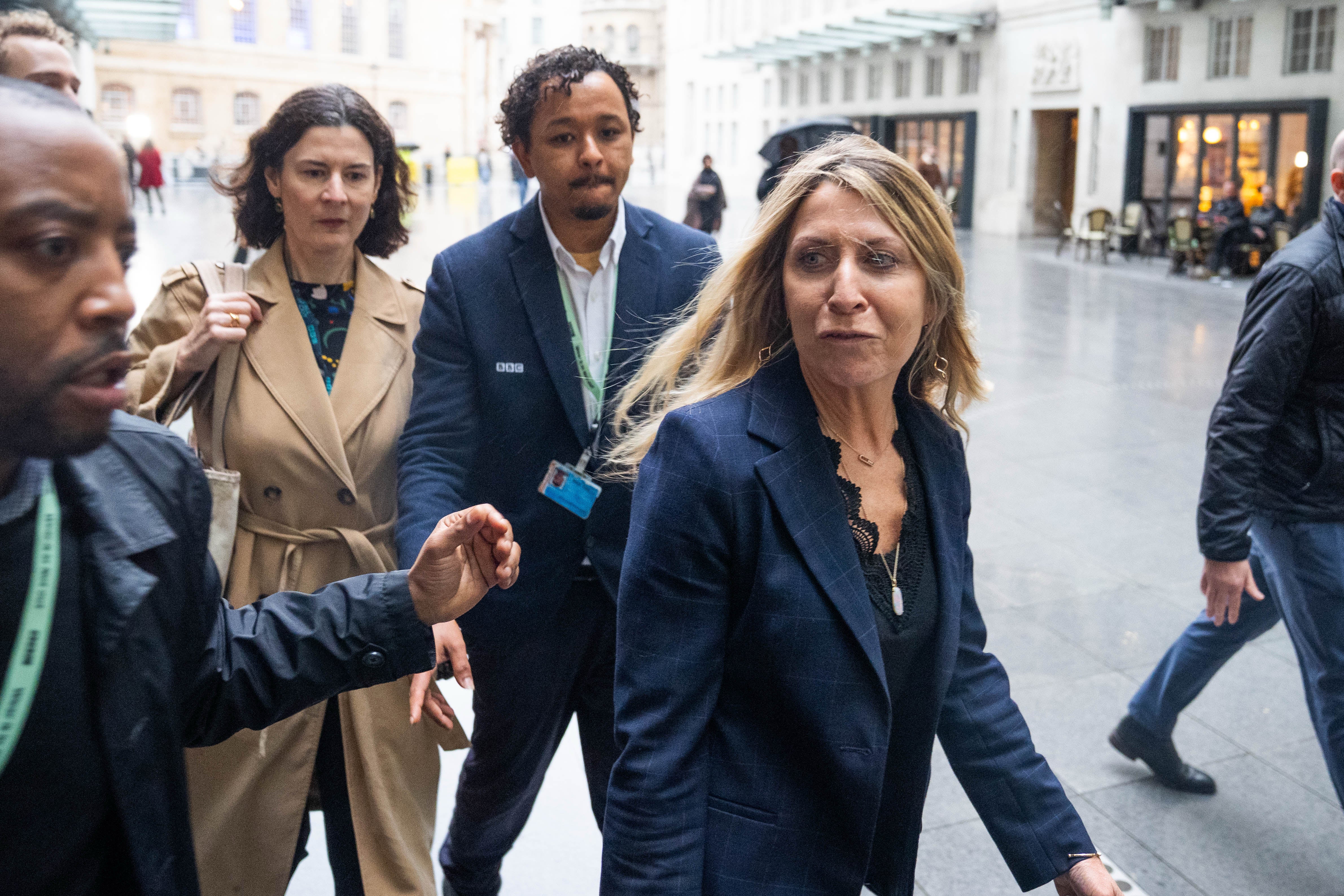 open image in galleryThe chief executive of BBC News, Deborah Turness, has resigned over the controversy (PA Wire)
open image in galleryThe chief executive of BBC News, Deborah Turness, has resigned over the controversy (PA Wire)Tuesday 11 November
Mr Trump sent an ultimatum to the BBC demanding it retract “false” and “defamatory” statements made about him in the Panorama documentary, or face a billion-dollar legal action.
In a letter to the corporation, Mr Trump’s lawyers said: “Failure to comply will leave President Trump with no choice but to pursue any and all legal rights and remedies available to recover damages for the overwhelming financial and reputational harm that the BBC has caused him to suffer, with all rights and remedies being expressly reserved by President Trump.”
The White House may also consider restricting the corporation’s access to “open press events” as a result of the edit, according to a senior official quoted in the Telegraph.
On the same day, Mr Davie told staff the corporation has to “stand up for our journalism”, and insisted it will control its own narrative which “will not just be given by our enemies”.
In remarks to BBC staff, he said: “We have to be very clear and stand up for our journalism.
“We are a unique and precious organisation, and I see the free press under pressure, I see the weaponisation. I think we’ve got to fight for our journalism.”
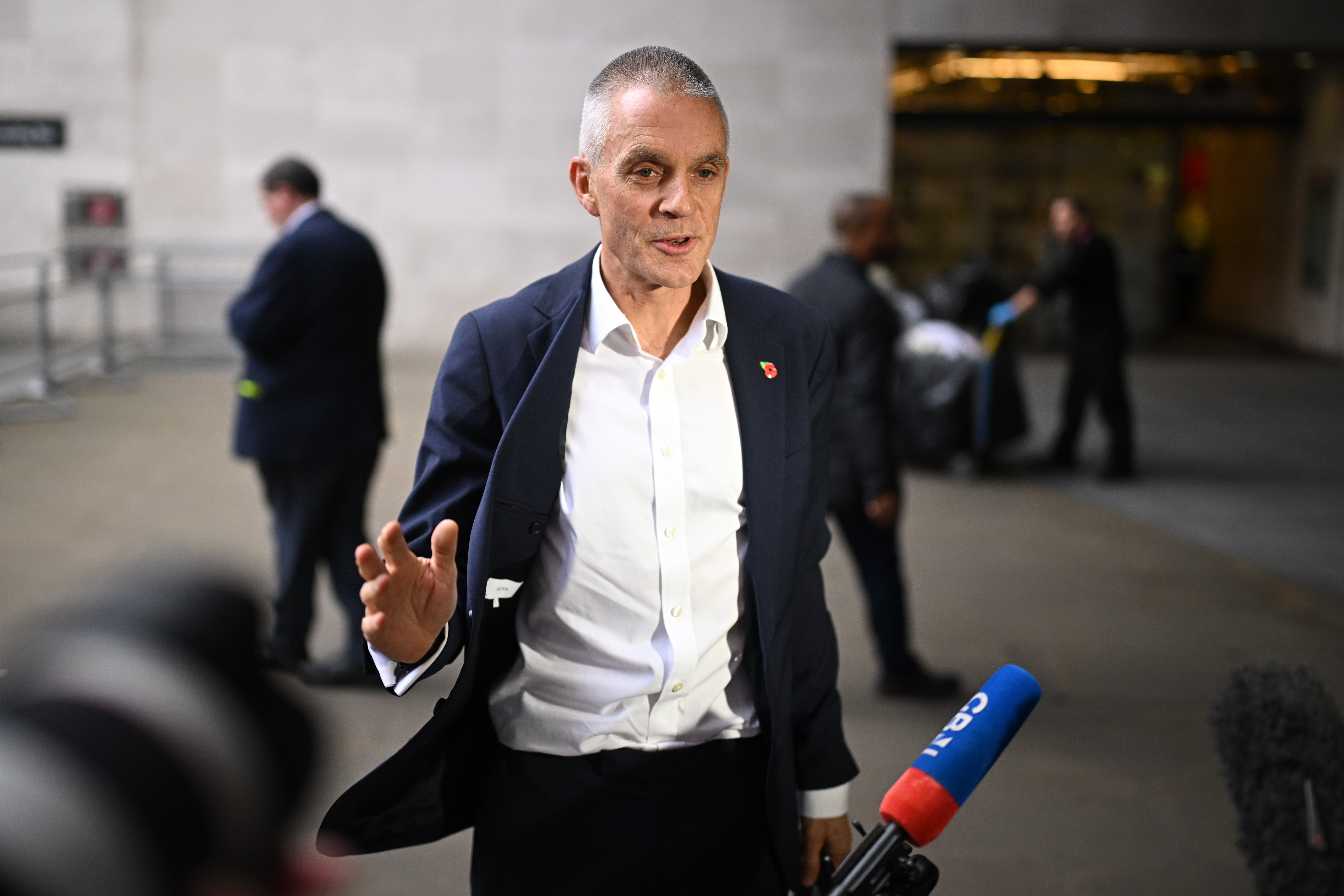 open image in galleryTim Davie said the BBC is a ‘unique and precious organisation’ (Getty)
open image in galleryTim Davie said the BBC is a ‘unique and precious organisation’ (Getty)Wednesday 12 November
Mr Trump told Fox News the BBC “defrauded the public”, adding: “I think I have an obligation to do it, you can’t allow people to do that.
“I guess I have to. They defrauded the public and they’ve admitted it. This is within one of our great allies, supposedly our great ally.
“That’s a pretty sad event. They actually changed my January 6 speech, which was a beautiful speech, which was a very calming speech, and they made it sound radical.
“They showed me the results of how they butchered it up. It was very dishonest and the head man quit and a lot of the other people quit.”
At Prime Minister’s Questions, Sir Keir Starmer said he believed in a “strong and independent” BBC but it needed to “uphold the highest standards”.
Liberal Democrat leader Sir Ed Davey claimed Mr Trump was “trying to destroy our BBC” and called on Sir Keir to “tell President Trump to drop his demand for a billion-dollar settlement” and guarantee that he “will not get a single penny from British licence fee payers”.
Sir Keir replied: “I believe in a strong and independent BBC. Some would rather the BBC didn’t exist. Some of them are sitting up there. I’m not one of them.
“In an age of disinformation, the argument for impartial British news service is stronger than ever, and where mistakes are made, they do need to get their house in order, and the BBC must uphold the highest standards to be accountable and correct errors quickly.”

Thursday 13 November
The BBC officially apologised to Mr Trump over the editing of the speech which appeared in the Panorama documentary, adding it was an “error of judgment” and the programme will “not be broadcast again in this form on any BBC platforms”.
The corporation however rejected the US president’s claims he had been defamed as well as his demands for compensation.
Mr Shah sent a personal letter to the White House to apologise for the editing of the speech but added: “While the BBC sincerely regrets the manner in which the video clip was edited, we strongly disagree there is a basis for a defamation claim.”
Friday 14 November
Mr Trump said he will sue the BBC next week after the corporation apologised but declined to compensate him.
Speaking to reporters on board Air Force One on Friday, he said: “We’ll sue them for anywhere between $1 billion (£759.8 million) and $5 billion (£3.79 billion), probably sometime next week.”
Mr Trump also told the Daily Telegraph that Sir Keir was “very embarrassed” by the incident and said he would speak with him over the weekend.
He said: “I think I have to do it. They’ve even admitted that they cheated … they changed the words coming out of my mouth.
“The people of the UK are very angry about what happened.”
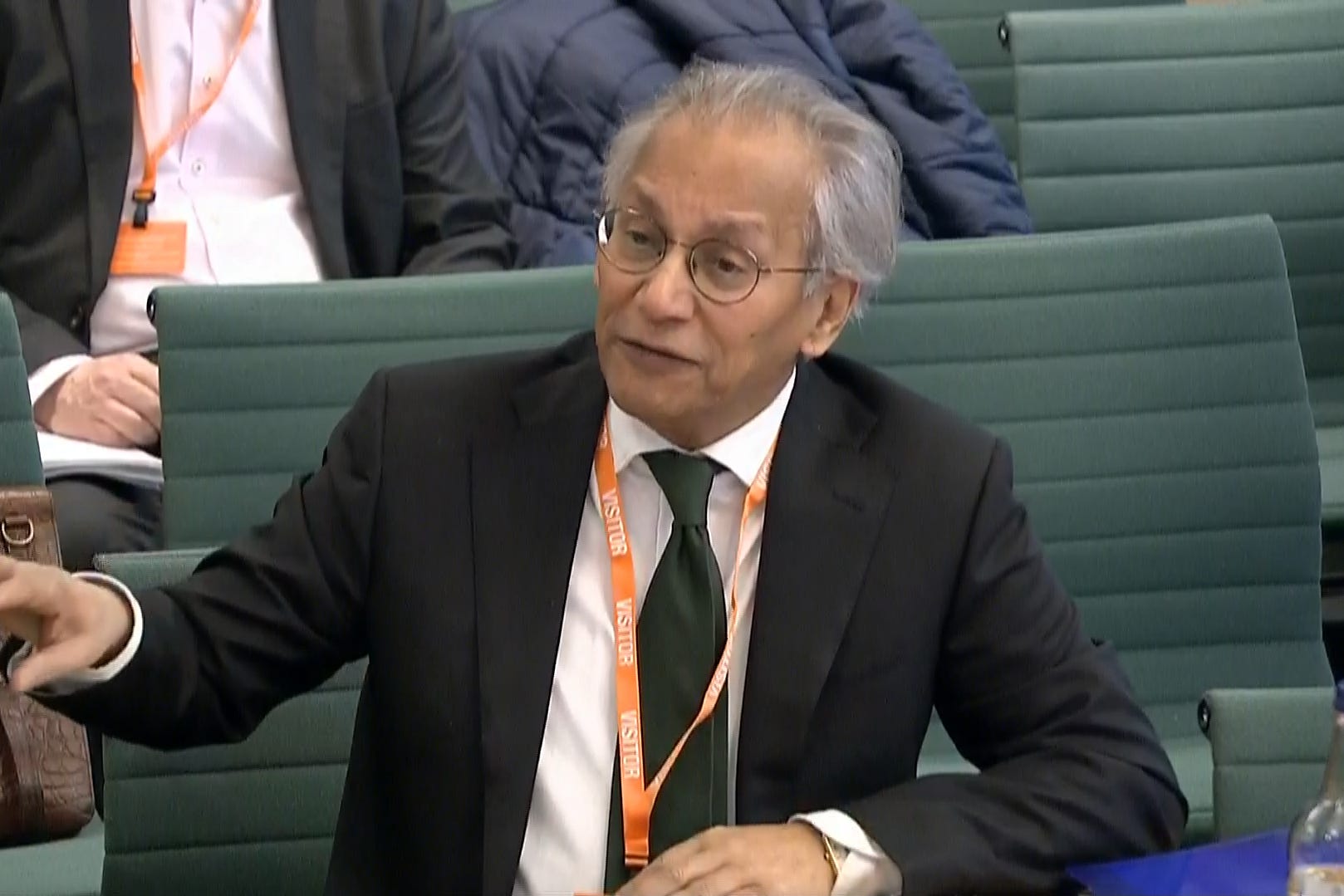 open image in gallerySamir Shah said there was no basis for a defamation case (UK Parliament)
open image in gallerySamir Shah said there was no basis for a defamation case (UK Parliament)Monday 17 November
Mr Shah told staff the BBC was “determined to fight” Mr Trump after the president announced he was suing the corporation.
In an email seen by Sky News, the chair said there was no basis for a defamation case. “There is a lot being written, said and speculated upon about the possibility of legal action, including potential costs or settlements”, he said.
“In all this we are, of course, acutely aware of the privilege of our funding and the need to protect our licence fee payers, the British public.
“I want to be very clear with you – our position has not changed. There is no basis for a defamation case and we are determined to fight this.”
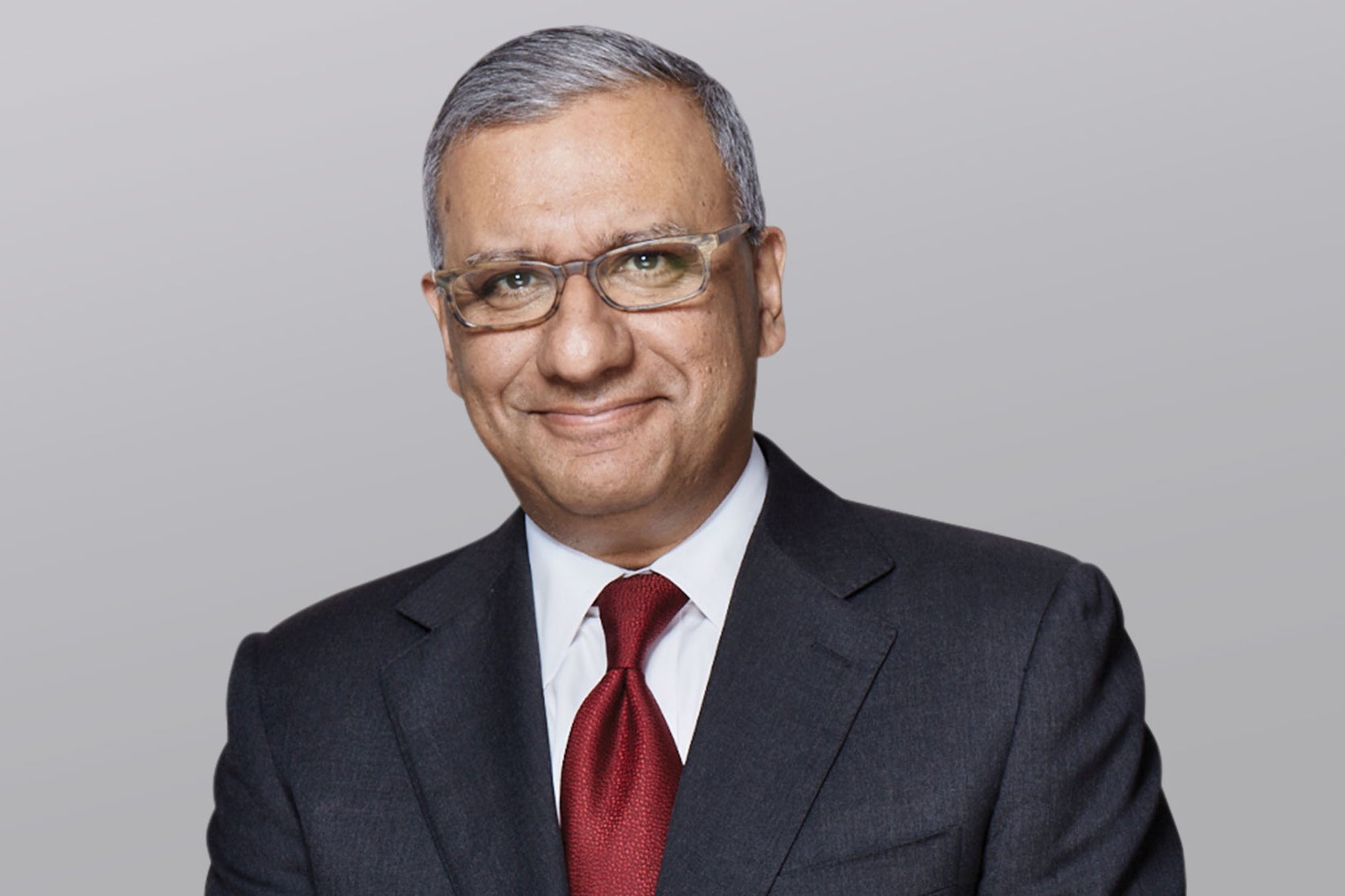 open image in galleryShumeet Banerji resigned from his role on 21 November (Reliance Industries Ltd)
open image in galleryShumeet Banerji resigned from his role on 21 November (Reliance Industries Ltd)Friday 21 November
BBC board member Shumeet Banerji resigned from his role, citing “governance issues” as the reason behind his exit.
Mr Banerji said in a letter that he was “not consulted” about the events leading up to the resignations of the director general, Mr Davie, and BBC News chief executive, Ms Turness.
According to the BBC, his blaming of governance issues appeared to be a direct criticism of chair Mr Shah and other members of the board.
On Friday, a BBC spokesperson said: “Shumeet Banerji today notified the BBC board of his resignation. Mr Banerji’s term on the board as a non-executive director was due to end at the end of December and we thank him for his service.”
Monday 24 November
Mr Shah and board members Sir Robbie Gibb and Caroline Thomson are due to give evidence to the culture, media and sport committee of MPs on Monday.
The committee will examine the claims made in the leaked document written by Mr Prescott, and the board members will likely face questions over claims of “systemic issues” within the BBC, which were first laid out in the document.
Mr Shah is under pressure for his handling of the situation, and is due to face tough questions alongside his colleagues. Mr Prescott will also give evidence to the committee over his concerns about editorial standards at the BBC.
More about
Donald TrumpTim DavieKeir StarmerBBCJoin our commenting forum
Join thought-provoking conversations, follow other Independent readers and see their replies
Comments

